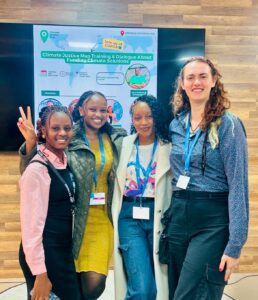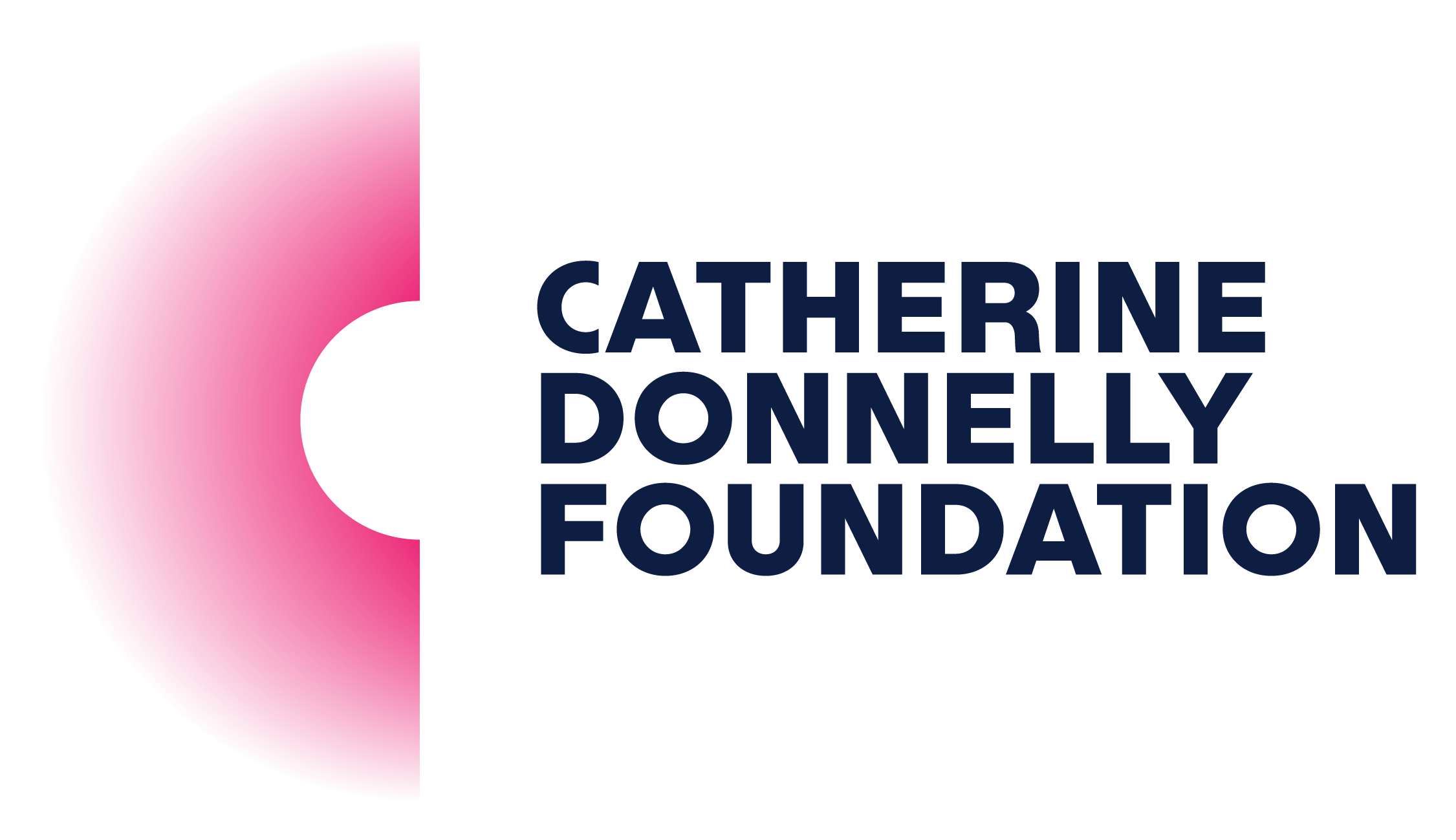Environment, Spotlight on partners, Story
March 17, 2025
Youth Climate Lab: Building climate justice by growing capacity in underserved groups
Youth Climate Lab: Building climate justice by growing capacity in underserved groups
March 2025
Youth face more climate-related threats than any other demographic group – and confront those risks with an energy and urgency directed toward sustainable and just solutions. Despite that passion, youth voices are often undervalued by policy makers, politicians, and funders.
Youth Climate Lab was founded in 2017 to address the shortage of opportunities, spaces and resources available for young people. This youth-led organization creates pathways for young people to pursue cooperative solutions rooted in climate justice and catalyze local and global action.
“There has been ‘engagement’ of youth, but more in a tokenizing way. Our voice is rarely asked for or nurtured,” says Kate Ashwood, Impact Manager at Youth Climate Lab. “So, we believe one of the ways to change how the climate crisis is being dealt with is to train youth to speak up for themselves, push their voices into those [closed] spaces and build new spaces to create the change they want.”

YCL has launched over 50 projects – from global, multi-partner initiatives focused on building North-South solidarity and relationships to developing tools to demystify territorial and federal governance structures and take climate action at those levels.
They support youth through an open-access digital library of interactive resources, alongside workshops and facilitators who foster youth engagement and spark climate action. Their programs equip youth with practical skills, financial access and policy knowledge to navigate climate decision-making arenas with confidence.
YCL’s RAD program is a micro-granting program that supports youth over the course of eight months by providing training, resources, and funding to implement community service projects, while Green Pathways connects individuals between the ages of 18 to 30 with employment opportunities in youth- and climate-focused organizations.
Root to Sky, meanwhile, is a climate-centered program initiated to build community and capacity among young Black, Indigenous, and People of Colour (BIPOC), while also creating space for rest and renewal.
When Root to Sky launched during the pandemic, 150 BIPOC youth participated in its first year – connecting, learning, and building meaningful relationships. Among those participants, 62% reported an increased understanding of climate justice and anti-racist climate work. “[The retreat was] a wonderful experience … to be intentional about resting collectively,” noted one BIPOC participant. “This retreat has re-energized me to continue moving in my work with a renewed sense of purpose.”
“BIPOC youth across Canada disproportionately feel the impacts of the climate crisis and there aren’t any dedicated spaces in Canada where they can come together and just process their climate emotions,” notes Ashwood. “It’s important to give them that time and space to move and initiate action fueled by what they have been able to process.”
YCL’s programs typically run for a minimum of six months, allowing participants to build lasting connections and meaningfully engage with the curriculum. All programming is grounded in YCL’s principles of radical collaboration, which emphasize that a more just, climate resilient future is best achieved through collaborations rooted in shared values.
In Operation COP, a pilot program supported by the Catherine Donnelly Foundation, YCL has partnered with Climate Reality Project Canada (CRPC) and Environment and Climate Change Canada (ECCC) to offer youth from underrepresented communities access to climate policy spaces through regular meetings with government and civil society groups and supports them in developing an engagement plan in their local community. YCL and CRPC are co-design partners across the full scope of Operation COP – from curriculum development to fundraising and facilitating – while ECCC will contribute to educational modules.
“We often first connect with youth when they’re in university. We’ll expose them to a range of things, and they’ll say, ‘oh, I didn’t know I could do this outside of the school setting’ or, ‘I love this so much, I want to pursue it more in formalized education’,” says Ashwood. “A large part of what YCL does is expand the menu of possibilities youth have in their mind for engagement with climate crisis.”
To learn more about Youth Climate Lab visit www.youthclimatelab.org.
